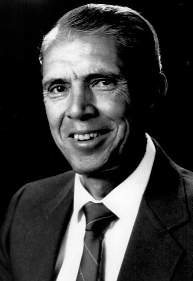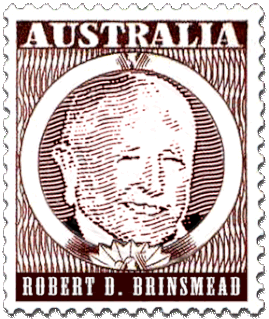Related Research Articles

The Seventh-day Adventist Church is an Adventist Protestant Christian denomination which is distinguished by its observance of Saturday, the seventh day of the week in Christian (Gregorian) and the Hebrew calendar, as the Sabbath, and its emphasis on the imminent Second Coming (advent) of Jesus Christ. The denomination grew out of the Millerite movement in the United States during the mid-19th century and it was formally established in 1863. Among its co-founders was Ellen G. White, whose extensive writings are still held in high regard by the church. Much of the theology of the Seventh-day Adventist Church corresponds to common evangelical Christian teachings, such as the Trinity and the infallibility of Scripture. Distinctive post-tribulation teachings include the unconscious state of the dead and the doctrine of an investigative judgment. The church places an emphasis on diet and health, including adhering to Kosher food laws, advocating vegetarianism, and its holistic view of human nature—i.e. that the body, soul, and spirit form one inseparable entity. The Church holds the belief that "God created the universe, and in a recent six-day creation made the heavens and the earth, the sea, and all that is in them, and rested on the seventh day". Marriage is defined as a lifelong union between a man and a woman. The second coming of Christ, and resurrection of the dead, are among official beliefs.

Ellen Gould White was an American author and co-founder of the Seventh-day Adventist Church. Along with other Adventist leaders such as Joseph Bates and her husband James White, she was instrumental within a small group of early Adventists who formed what became known as the Seventh-day Adventist Church. White is considered a leading figure in American vegetarian history. The Smithsonian magazine named Ellen G. White among the "100 Most Significant Americans of All Time."
Walter Ralston Martin, was an American Baptist Christian minister and author who founded the Christian Research Institute in 1960 as a para-church ministry specializing as a clearing-house of information in both general Christian apologetics and in countercult apologetics. As the author of the influential The Kingdom of the Cults (1965), he has been dubbed the "godfather of the anti-cult movement".

Desmond Ford was an Australian theologian who studied evangelicalism.

The Seventh-day Adventist Church had its roots in the Millerite movement of the 1830s to the 1840s, during the period of the Second Great Awakening, and was officially founded in 1863. Prominent figures in the early church included Hiram Edson, Ellen G. White, her husband James Springer White, Joseph Bates, and J. N. Andrews. Over the ensuing decades the church expanded from its original base in New England to become an international organization. Significant developments such the reviews initiated by evangelicals Donald Barnhouse and Walter Martin, in the 20th century led to its recognition as a Christian denomination.

The investigative judgment, the pre-Advent Judgment, is a unique Seventh-day Adventist doctrine, which asserts that the divine judgment of professed Christians has been in progress since 1844. It is intimately related to the history of the Seventh-day Adventist Church and was described by one of the church's pioneers Ellen G. White as one of the pillars of Adventist belief. It is a major component of the broader Adventist understanding of the "heavenly sanctuary", and the two are sometimes spoken of interchangeably.
Adventist Review is the general paper of the Seventh-day Adventist Church. Founded in 1849, it is published monthly by the General Conference of Seventh-day Adventists. Adventist Review also publishes a sister magazine, Adventist World, and the youth-oriented KidsView. The editorial offices of the publication are headquartered at the General Conference of Seventh-day Adventists in Silver Spring, Maryland. The current editor of Adventist Review is Bill Knott. The magazine currently has nearly 30,000 paying subscribers. Its library reference number is OCLC 9572173.

Progressive Adventists are members of the Seventh-day Adventist Church who prefer different emphases or disagree with certain beliefs traditionally held by mainstream Adventism and officially by the church. While they are often described as liberal Adventism by other Adventists, the term "progressive" is generally preferred as a self-description. This article describes terms such as evangelical Adventism, cultural Adventism, charismatic Adventism, and progressive Adventism and others, which are generally related but have distinctions.

Seventh-day Adventists Answer Questions on Doctrine is a book published by the Seventh-day Adventist Church in 1957 to help explain Adventism to conservative Protestants and Evangelicals. The book generated greater acceptance of the Adventist church within the evangelical community, where it had previously been widely regarded as a cult. However, it also proved to be one of the most controversial publications in Adventist history and the release of the book brought prolonged alienation and separation within Adventism and evangelicalism.

Historic Adventism is an informal designation for conservative individuals and organizations affiliated with the Seventh-day Adventist Church who seek to preserve certain traditional beliefs and practices of the church. They feel that the church leadership has shifted or departed from key doctrinal "pillars" ever since the middle of the 20th century. Specifically, they point to the publication in 1957 of a book entitled Seventh-day Adventists Answer Questions on Doctrine; which they feel undermines historic Adventist theology in favor of theology more compatible with evangelicalism. Historic Adventism has been erroneously applied by some to any Adventists that adhere to the teachings of the church as reflected in the church's fundamental beliefs such as the Sabbath or the Spirit of Prophecy. They misapply those who hold to mainstream traditional Adventist beliefs as synonymous with Historic Adventist.

Robert Daniel "Bob" Brinsmead is a formerly controversial figure within the Seventh-day Adventist Church in the 1960s and 1970s who is known for his diverse theological journey.

Arthur Nelson Patrick was a Seventh-day Adventist theologian and historian. At the time of death, he was an honorary senior research fellow at Avondale College in New South Wales, Australia. He also worked in pastoral ministry, evangelism, religion teaching, academic administration, and hospital chaplaincy for the Seventh-day Adventist church.
In the Seventh-day Adventist Church, the Sanctuary Review Committee was a group of biblical scholars and administrators which met to decide the church's response to theologian Desmond Ford, who had challenged details of the church's "investigative judgment" teaching. The meeting was held from August 10–15, 1980, at the Glacier View Ranch, a church-owned retreat and conference centre in Colorado, United States. The event is referred to informally as "Glacier View". The outcome was Ford losing his job.
Edward E. Heppenstall was a leading Bible scholar and theologian of the Seventh-day Adventist Church. A 1985 questionnaire of North American Adventist lecturers revealed Heppenstall was the Adventist writer who had most influenced them.

This article describes the relationship between the Seventh-day Adventist Church and other Christian denominations and movements, and other religions. Adventists resist the movement which advocates their full ecumenical integration into other churches, because they believe that such a transition would force them to renounce their foundational beliefs and endanger the distinctiveness of their religious message. According to one church document,

Colin D. Standish and Russell Roland Standish were identical twin brothers and "historic" Seventh-day Adventists. They were often referred to collectively as the Standish brothers. They co-authored many books together, which have been published by their Hartland Institute.

Hans Karl LaRondelle was a respected Seventh-day Adventist theologian; a strong proponent of the gospel and salvation by faith alone. In a 1985 questionnaire of North American Adventist Theology lecturers, LaRondelle tied for fourth place among the Adventist authors who had most influenced them, and was number one amongst the under 39 age group. He died March 7, 2011.
The Reverend Geoffrey J. Paxton has been an ordained minister in the Anglican Church of Australia. He is a graduate of Australian College of Theology and the University of Queensland. He tutored in the history of Christian thought at the University of Queensland, and in Greek and New Testament studies in the Brisbane College of Theology. Paxton traveled extensively in the United States, Britain, South Africa, the Philippines and New Zealand lecturing in Reformation theology. He has also held classes on homiletics (preaching) for over a decade.
Milton Raymond Hook is a Seventh-day Adventist religion educator, author and church historian. He is an honorary research fellow at Avondale College, New South Wales, Australia.

Richard M. Davidson is an Old Testament scholar at Andrews University, Michigan, where he is currently the J. N. Andrews Professor of Old Testament Exegesis.
References
- 1 2 Library catalog entry at Andrews University
- ↑ Ostling, Richard N.; Jim Castelli; Dick Thompson (August 2, 1982). "The Church of Liberal Borrowings". Time . Time Inc. ISSN 0040-781X. Archived from the original on December 9, 2012. Retrieved October 22, 2007.
- ↑ Leaving the Adventist Ministry: A Study of the Process of Exiting by Peter H. Ballis, p. 3
- ↑ Tarling, Lowell R. (1981). The Edges of Seventh-day Adventism: A Study of Separatist Groups Emerging from the Seventh-day Adventist Church (1844–1980). Barragga Bay, Bermagui South, NSW: Galilee Publications. p. 230. ISBN 0-9593457-0-1.
- 1 2 Library catalog entry for Evangelica update at Andrews University
- ↑ From Controversy to Crisis: An Updated Assessment of Seventh-day Adventism by Kenneth R. Samples. Christian Research Journal 11:1 (Summer 1988), p. 9